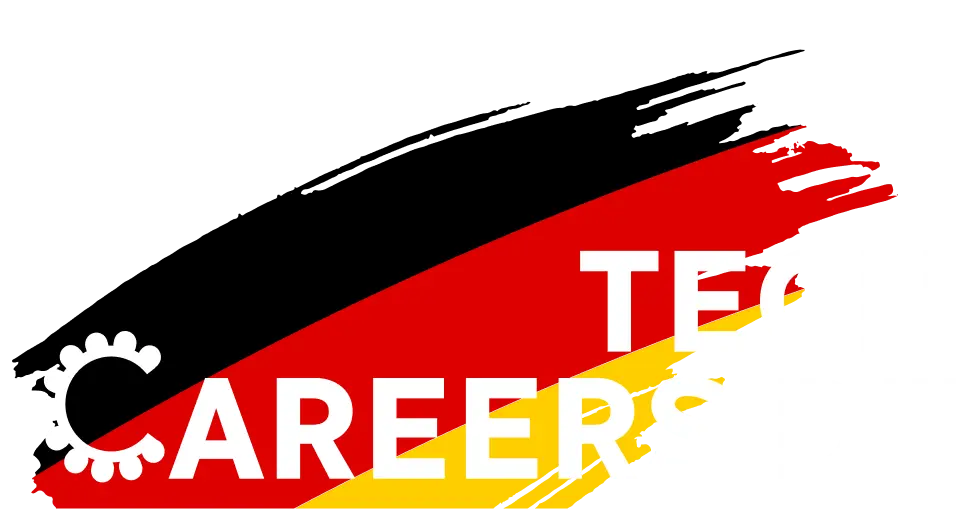Overview of the Rust Developer Jobs in Germany
The job market for Rust developers in Germany is growing, with numerous opportunities available in cities like Berlin, Munich, and Hamburg. Rust developers can expect to work in various sectors, including blockchain, finance, and technology startups. The average salary for a Rust developer in Germany is approximately €89,000 per year, with senior positions averaging around €95,731. Remote work options are also prevalent, allowing for greater flexibility in job opportunities. Popular roles include backend developers and full-stack developers.
Rust Developer Jobs Market Landscape
Responsibilities of Rust Developer
A Rust developer’s responsibilities typically include:
Writing and Testing Code:
- Develop and maintain efficient, reliable Rust code.
- Write unit and integration tests to ensure software quality.
Design and Implementation:
- Design and implement high-performance, concurrent systems.
- Ensure memory safety and performance optimization.
Debugging and Troubleshooting:
- Identify and fix bugs in the codebase.
- Optimize code for performance and scalability.
Collaboration:
- Work closely with other developers, engineers, and stakeholders.
- Participate in code reviews and contribute to team knowledge sharing.
Documentation:
- Write and maintain clear and comprehensive documentation for the codebase and APIs.
Specialized Responsibilities
System Programming:
- Develop low-level system components.
- Work on embedded systems and performance-critical applications.
Concurrency and Parallelism:
- Implement and manage concurrent and parallel programming techniques.
Integration with Other Languages:
- Interoperate Rust code with other languages like C/C++.
Additional Considerations
Keeping Up-to-Date:
- Stay current with the latest Rust language features and industry trends.
- Continuously improve skills through learning and practice.
Security:
- Implement secure coding practices to protect applications and data.
- Conduct regular security audits and vulnerability assessments.
Performance Optimization:
- Focus on achieving high performance and low latency in applications.
- Use profiling tools to identify and resolve performance bottlenecks.
These responsibilities can vary based on the specific role and project requirements.
Skills Required for Rust Developer in Germany
Proficiency in Rust:
- Strong understanding of Rust syntax, semantics, and memory safety features.
- Experience with Rust’s concurrency and parallelism paradigms.
System Programming:
- Experience in low-level system programming and performance optimization.
Concurrency and Parallelism:
- Familiarity with Rust’s concurrency model and best practices for writing concurrent code.
Interoperability:
- Ability to integrate Rust with other languages, particularly C and C++.
Testing and Debugging:
- Proficiency in writing and executing tests, using tools like
cargo test. - Strong debugging skills, with experience using tools like
gdband Rust’s built-in debugging features.
- Proficiency in writing and executing tests, using tools like
Version Control:
- Experience with Git and platforms like GitHub, GitLab, or Bitbucket.
Web Assembly (Wasm):
- Knowledge of compiling Rust code to WebAssembly for web applications.
Familiarity with Tooling:
- Proficient with Rust’s package manager (
cargo), build system, and ecosystem.
- Proficient with Rust’s package manager (
Problem-Solving:
- Strong analytical and problem-solving abilities.
Communication:
- Good verbal and written communication skills, especially in English; German language skills are often a plus.
Collaboration:
- Ability to work effectively in a team environment.
- Experience in agile methodologies like Scrum or Kanban.
Time Management:
- Strong organizational skills and the ability to manage multiple tasks simultaneously.
Continuous Learning:
- A willingness to continuously improve and stay updated with the latest technologies and industry trends.
Rust Developer Vacancies in Large German Companies
Here are some of the current Ruby developer vacancies in large German companies:
- BMW Group: Hiring for various roles involving system programming and high-performance applications.
- Siemens: Looking for Rust developers for embedded systems and industrial automation projects.
- Deutsche Bank: Recruiting Rust developers for fintech solutions and backend systems.
- SAP: Offering positions for developers to work on energy management and smart grid technologies.
- Zalando: Seeking Rust developers for enhancing their e-commerce platform’s performance and reliability.
Top German Cities to Find Rust Developer Jobs
IT Jobs in Berlin: A major tech hub with numerous startups and established companies.
IT Jobs Munich: Home to many large corporations like BMW and Siemens.
IT Jobs Hamburg: A growing tech scene with a variety of companies seeking tech talent.
IT Jobs in Stuttgart: Known for its automotive industry, including companies like Daimler and Porsche.
IT Jobs in Frankfurt: Financial center with opportunities in fintech and other industries.
Rust Developer Salary in Germany
The average salary for a Rust developer in Germany varies depending on experience and location. Here are some key insights:
Average Salary:
- The average salary for a Rust developer in Germany is around €67,500 per year, with most salaries ranging between €50,000 and €75,000 annually.
- In Berlin, specifically, the average salary is about €64,775, with a range from €52,500 to €77,050 depending on experience and technical expertise.
Challenges and Opportunities in the Rust Developer Job Market
Challenges
High Learning Curve:
- Rust’s strict compiler and emphasis on safety and concurrency can be difficult for developers to master, leading to a steep learning curve.
Limited Job Market:
- Compared to more established languages like Python and JavaScript, the job market for Rust developers is still growing, leading to fewer opportunities.
Experience Demand:
- Many positions require significant experience and a deep understanding of systems programming, making it challenging for junior developers to break into the field.
Rapid Technological Changes:
- Keeping up with Rust’s fast-paced development and integration into various systems requires continuous learning and adaptation.
Economic Uncertainty:
- Economic fluctuations can impact hiring rates and job stability, particularly in startups and smaller companies where Rust is often used.
Opportunities
Growing Popularity:
- Rust’s popularity is increasing due to its performance and safety features, leading to a growing number of job opportunities in various industries.
High Demand for Systems Programming:
- There is a strong demand for Rust developers in systems programming, embedded systems, and performance-critical applications, especially in tech hubs like Berlin and Munich.
Open Source Contributions:
- Rust’s active open-source community provides opportunities to contribute to projects, gain experience, and enhance visibility in the developer community.
Remote Work:
- The rise of remote work has expanded opportunities for Rust developers, allowing them to work for companies around the world.
Diverse Industries:
- Rust is being adopted in various sectors, including finance, healthcare, and blockchain, providing diverse job opportunities.
By staying current with trends, continuously improving skills, and leveraging networking opportunities, Rust developers can navigate the challenges and capitalize on the growing opportunities in the job market.
Tips for Finding a Rust Developer Jobs in Germany
- Utilize Job Portals:
Leverage specialized job portals such as RustJobs.dev and general platforms like LinkedIn, Indeed, and Glassdoor to search for Rust developer roles in Germany.
- Company Career Pages:
Regularly check the career pages of major companies such as BMW, Siemens, Deutsche Bank, and Zalando for Rust developer vacancies.
- Networking:
Attend tech meetups, conferences, and webinars related to Rust and systems programming. Joining Rust communities on platforms like Meetup, GitHub, and Reddit can help you connect with other developers and potential employers.
- Recruitment Agencies:
Partner with recruitment agencies specializing in tech jobs in Germany, such as Caissa Global and EuroTechJobs. These agencies can provide tailored job opportunities and career advice.
- Optimize Your Online Presence:
Update your LinkedIn profile to highlight your Rust skills and experience. Make sure your GitHub profile showcases relevant projects and contributions to Rust repositories.
- German Language Skills:
While many tech companies in Germany operate in English, learning German can give you an advantage in the job market. It shows cultural adaptability and can broaden your job opportunities.
- Open Source Contributions:
Contribute to open-source Rust projects to build your portfolio and gain visibility in the developer community. Active participation in the Rust ecosystem can lead to job offers and freelance opportunities.
- Continuous Learning:
Keep your skills up-to-date by taking online courses and certifications in Rust and related technologies. Platforms like Coursera, Udemy, and the Rust Programming Language Book are excellent resources for learning and improving your skills.
- Freelance Platforms:
Explore freelance platforms like Upwork, Toptal, and Freelancer, where Rust development skills are in demand. Freelancing can help you build experience and a portfolio if you are new to the job market.
- Tailored Applications:
Customize your resume and cover letter for each job application, emphasizing your relevant Rust experience and how it aligns with the job requirements. Highlight specific projects and achievements that demonstrate your proficiency.
By following these tips, you can significantly enhance your chances of securing a tech job in Germany as a Rust developer.

